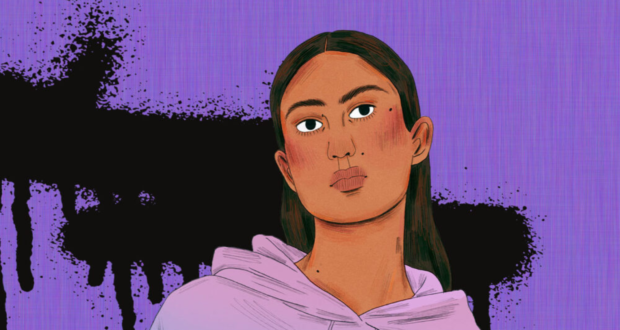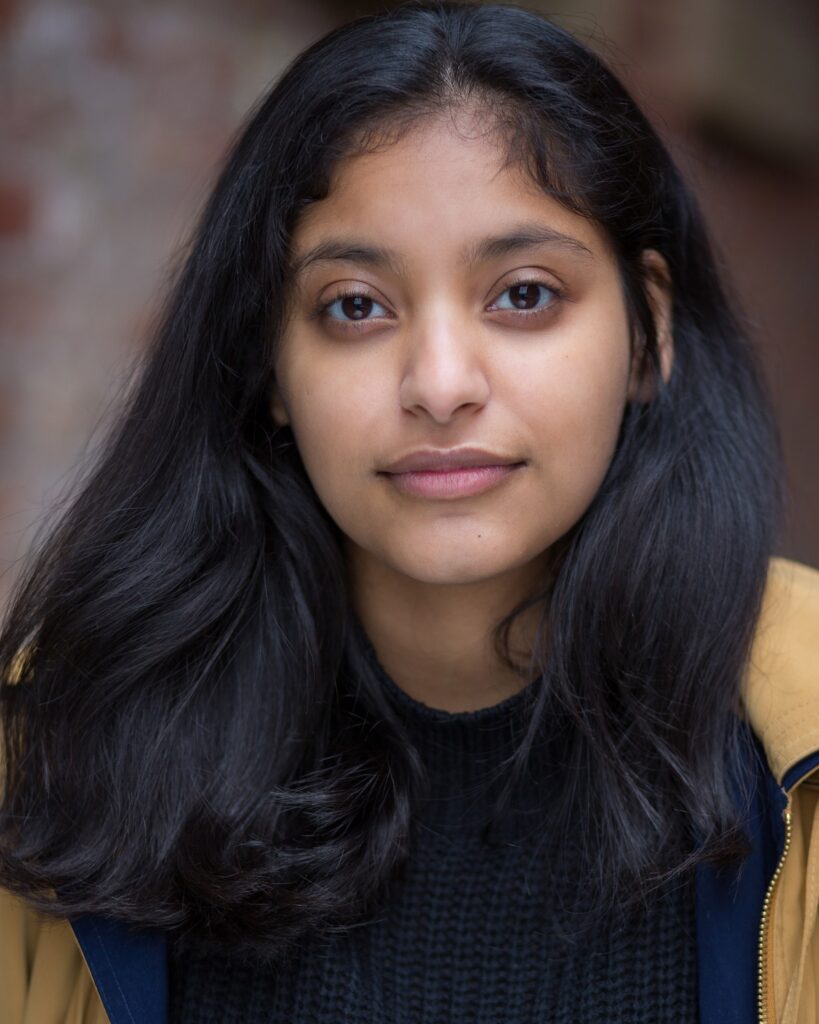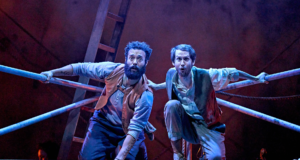Manjeet Mann on adapting her novel Run, Rebel for the stage
Manjeet Mann is an award-winning children’s author, playwright and screenwriter. This year her debut YA novel Run, Rebel follows Amber, a young girl of South Asian heritage, and her attempt through athletics to escape the intense pressures of her life and strict cultural expectations. The book is now being reimagined for the stage, and heading out on a tour of the UK. We were delighted to get the chance to ask her about the play and the stories she’s making visible.
Hi Manjeet. It’s great to chat with you about your stage adaptation of Run, Rebel. How did the story come about?
The initial idea came from wanting to write something for my teenage self. The teenager who felt disempowered, isolated and voiceless, and therefore the adult me is passionate about empowering women and girls any way I can.
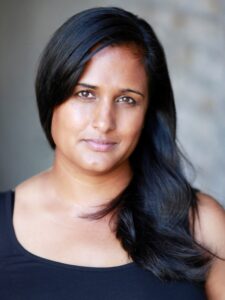 Run, Rebel is partly inspired by my own experiences growing up; the people, the places and the stories I was told, and it is partly inspired by my work in the community through my organisation Run The World. I started writing Run, Rebel around the same time as I set up the organisation. Many of the women I was working with were survivors of domestic violence and hearing their brave, life changing stories, gave me the confidence to dig deep and share the story I wanted to tell.
Run, Rebel is partly inspired by my own experiences growing up; the people, the places and the stories I was told, and it is partly inspired by my work in the community through my organisation Run The World. I started writing Run, Rebel around the same time as I set up the organisation. Many of the women I was working with were survivors of domestic violence and hearing their brave, life changing stories, gave me the confidence to dig deep and share the story I wanted to tell.
The original novel is brilliantly distinctive, and it’s as if it breaks with tradition itself; written in verse form and typographically interesting, so parts of the text leap out or are performative. Are you able to reflect this in the visuals of the stage production?
There are many storytelling layers to the stage production. Spoken word, physical language through movement, music, set design and finally there is a digital language which includes projection and film. So, in short…Yes!
There are some very difficult themes, so you’re not pulling any punches for your young audience. Why is it important for this age group to engage with the truth of these topics?
It’s important because it’s some people’s lived experience. There will be young people going through these issues or who have difficult lives for a whole host of other reasons. So, it’s important not to shy away from these topics, although you do have to be mindful of how you tell these stories. There is a fine balance that you have to find. It’s important for these teenagers to see themselves, so they know that they are not alone. Equally, if it’s not your lived experience it’s important for young people to walk in someone else’s shoes for a couple of hours; it builds empathy, understanding and helps broaden their world view. We all know the transformative effects theatre can have on anyone, regardless of age, it can help empower, find a sense of belonging and can be life changing.
What can you tell us about your cast?
They are an amazing, dynamic and talented bunch! All except Jess (who plays Amber) multi role so it’s quite a feat for them all. And that’s not saying Jess has it easy, not at all. She is on stage throughout, no breaks, so she’s running a marathon every night. It’s a physically demanding piece too, with lots of movement. None of the actors are trained dancers so they are all being pushed out of their comfort zone. Most of the cast are also from the Midlands. Although it’s never explicitly mentioned in the novel that the story is set in the Midlands, it is, so having a bunch of Brummies in the mix is very special.
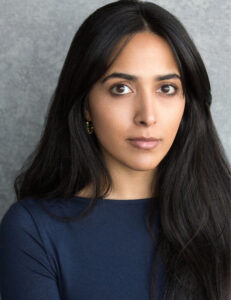

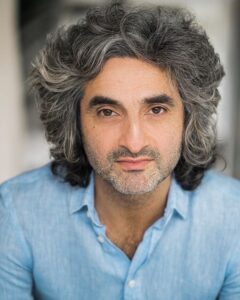

Amber finds liberation through running, and sport is a really effective means of empowerment for many women. Can you tell us more about the Run the World project?
I set up Run The World in 2018 and I use sport and storytelling to help empower women and girls from all walks of life and physical abilities, with a strong focus on women and girls from marginalised backgrounds, empowering them through running and other sporting activities and art. It is a safe space where the focus is on creativity and fun and the social aspect of non-competitive sport: a place where a community is built around supporting one another, empowering one another and, as women, fearlessly moving forward together.
Exercise sessions are followed by creativity sessions where women and girls work together to co-create a piece of art. This can include theatre, visual art, writing, anything they like really, the focus being telling their individual stories. Together they are able to develop creativity, confidence and leadership skills. Sport and art are wonderful enablers to open up that side of ourselves that fears to be bold, overcomes our fear and forces us to grow. I worked with groups in Birmingham and Folkestone before an enforced two-year hiatus and I’m hoping to get started again this year.
You’re working with Pilot Theatre, who are renowned for producing high quality work for young people that expands and diversifies programming onstage. How has the collaboration been?
I couldn’t have asked for a better partner. There’s not a theatre company like them. They know what YA audiences like, want and need and have been a wonderful support and key in crafting the adaptation. I will be forever grateful to Esther, the Artistic Director of Pilot, for trusting me with the adaptation. It’s my first midscale production, so this could have gone to someone with far more experience, but she didn’t even question the fact that I wanted to adapt it. I honestly feel as though this production has a dream team of collaborators and it wouldn’t be possible without every single one of them.
Can you tell us about how you hope the work might impact its audience? Is this a story only for women, or is there a message in it for everybody?
It’s definitely a universal story. It’s a story of hope, resilience and fighting for the life that you want to live. I think that’s a story anyone can get behind.
Thanks so much to Manjeet for taking the time to tell us about this amazing production.
Run, Rebel is aimed at ages 11+. It opens at the Mercury Theatre in Colchester on Friday 25 February and will then be touring to York, Derby, Coventry and Alnwick. Tour dates can be found here.
 Everything Theatre Reviews, interviews and news for theatre lovers, London and beyond
Everything Theatre Reviews, interviews and news for theatre lovers, London and beyond
